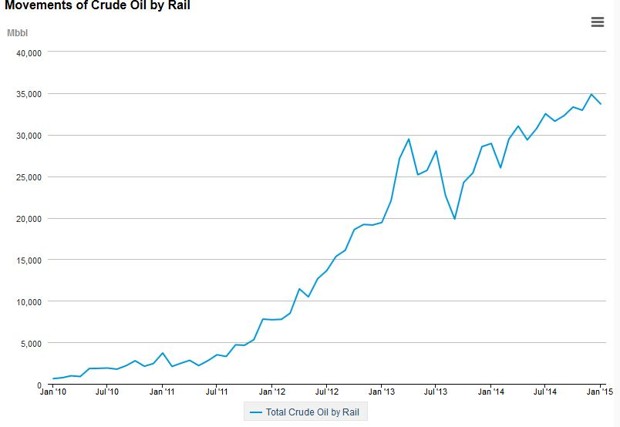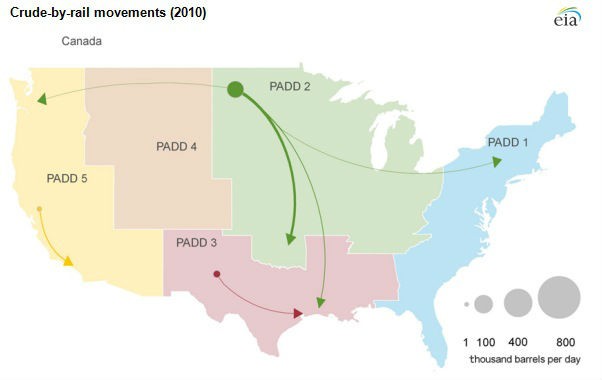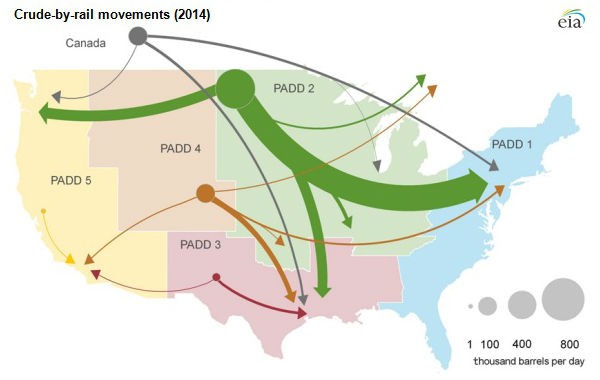10 North American Oil Trains Have Now Exploded in 2 Years
The Transportation Department has released new regulations to control the disturbing trend.
The crude oil train that derailed and burst into flames last week near tiny Heimdal, North Dakota (population: 27), was the latest explosion in a disturbing series across North America. Over at Sightline, Eric de Place and Keiko Budech now count at least 10 oil train accidents over just the past two years—dating back to the July 2013 crash in Lac-Mégantic, Quebec. Others during that span have occurred in the likes of Illinois, West Virginia, and Alabama.
There's no mystery why these incidents are occurring now: the practice of moving crude oil by rail in North America is climbing at a startling rate. In a separate Sightline post, de Place and Deric Gruen chart the trend via new material from the U.S. Energy Information Administration. This one just about says it all—oil train shipments either to, from, or within the U.S. have gone from 20 million barrels in 2010 to 373 million in 2014, largely on the back of new production from the Bakken region:

The EIA offers a more visual look via time-based maps. Here's the skinny-arrowed look at how things were in 2010:

And here's the fuller and fattened landscape today:

Even before the Heimdal explosion, federal officials did recognize the problem. On May 1, the U.S. Department of Transportation announced a four-part plan to improve oil train safety: enhanced tank cars with thicker shells, better braking systems less likely to "pile up," reduced speeds and other operating requirements, and improved classification—building on new rules that included a 40-mph speed limit through urban areas. Canada released similar standards.
The DOT regulations are a good start, though as usual there's a little something for everyone to dislike. Some officials worry the changes will actually make it harder for the public to get information about oil train routes and schedules. Railroads question whether the brake requirements will truly upgrade safety. None of the rules address what one senator told the New York Times is at the core of the problem: Bakken crude is just way more volatile than typical oil.
Taking the wider view, the safety hazard of moving crude by rail is yet anotherhidden social cost of car reliance. The longer these go unpaid, the higher the cost to all.






